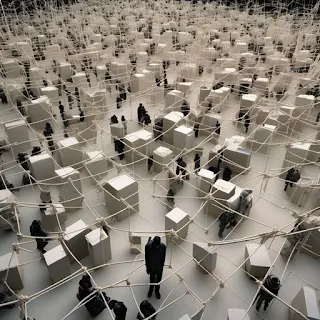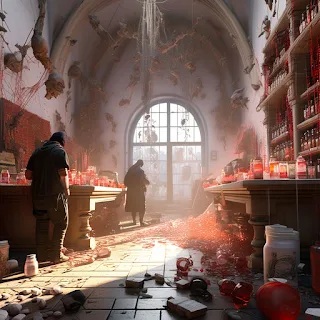Unbelievable and Thrilling Facts about the Dark Web
1.Size and Scale
The Dark Web is estimated to be over 500 times larger than the regular internet, hosting a vast array of hidden services that aren't indexed by traditional search engines.
2.Origins for Good
Initially developed by the United States Navy to enable secure and anonymous communications, the Dark Web is now frequently associated with illicit activities but was originally created to protect U.S. intelligence communications online.
3.Cryptocurrency Economy
Crypto-based currencies, primarily Bitcoin, are the main mode of transaction on the Dark Web, providing anonymity in purchases of illicit goods and services.
4.Silk Road, the Pioneering Marketplace
Silk Road was one of the first and most infamous marketplaces on the Dark Web, primarily used for selling illegal drugs. It was shut down by the FBI in 2013.
5.Journalistic Haven
Journalists and whistleblowers use the Dark Web to communicate securely, especially in countries where press freedom is restricted.
6.Global Drug Trade
Research indicates that drug sales on the Dark Web are in the hundreds of millions of dollars annually, with transactions completed anonymously and mailed directly to buyers.
7.Contracts on Crime
Marketplaces for hiring criminals for various illegal tasks, from hacking to physical harm, exist on the Dark Web. However, the legitimacy and fulfillment of such contracts are often questionable.
8.Dark Web Red Rooms
Allegedly, "Red Rooms" are live streams where viewers can pay to watch acts of torture or murder. However, many believe these are urban myths or scams.
9.Escaping Censorship
Citizens in restrictive countries use the Dark Web to bypass government censorship to access news and communicate freely.
10.Exclusive Leaks and Databases
Leaked or stolen data, from personal identities to corporate secrets, often find their way onto the Dark Web for sale.
11.Literary Lorenzi Market
A lesser-known aspect of the Dark Web includes the selling of rare books and manuscripts, some of which are illegal to own or trade.
12.The Use of Dead Drops
To avoid mail detection, some Dark Web transactions use "dead drops", where goods are hidden in a public place to be picked up later by the buyer.
13.Multiplying Markets
Despite government crackdowns, when a Dark Web market is shut down, multiple new ones appear in its place—demonstrating resilience akin to the "hydra" effect.
14.COVID-19 Vaccines and Treatments
During the COVID-19 pandemic, unauthorized and often counterfeit COVID-19 vaccines and treatments were sold on the Dark Web, showcasing the scope of items exchanged there.
15.The Darkest Surgeries
There are reports of organs being trafficked through the Dark Web, though reliable data is scarce. This highlights the profound ethical and legal violations existing in these hidden marketplaces.
Notable Case: The Silk Road
Silk Road was the most notorious online black market specifically designed for trading illegal drugs. Launched in 2011 by Ross Ulbricht (aka Dread Pirate Roberts), it was an unprecedented platform that utilized Tor and Bitcoin to evade law enforcement. By the time of its closure by the FBI in October 2013, Silk Road had generated over $1.2 billion in sales. Ulbricht was convicted on charges including conspiracy to commit money laundering, computer hacking, and conspiracy to traffic narcotics, and he was sentenced to life in prison without the possibility of parole.
Conclusion
Despite its many nefarious uses, the Dark Web also plays a crucial role in assisting journalists, activists, and whistleblowers in oppressive regimes. However, navigating the Dark Web requires extreme caution due to its inherent risks and illegal offerings. The Dark Web remains a complex, dual-natured part of the internet, reflecting the broader contradictions of anonymity and freedom on the web.








